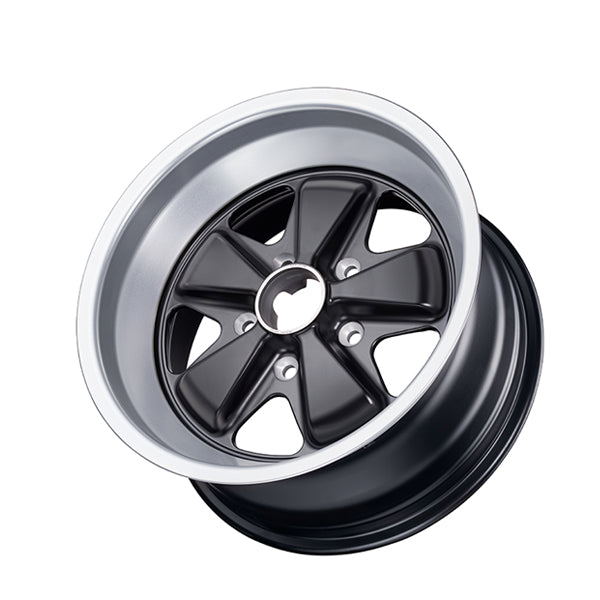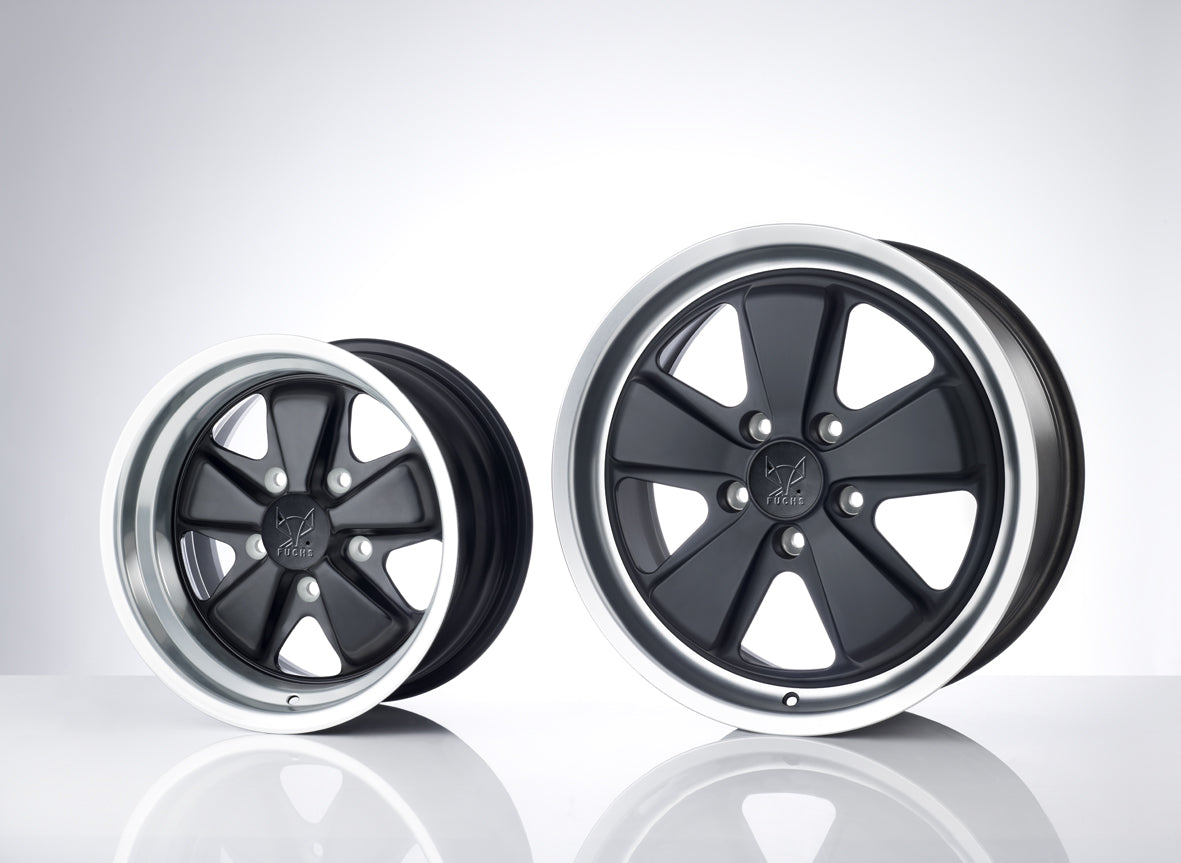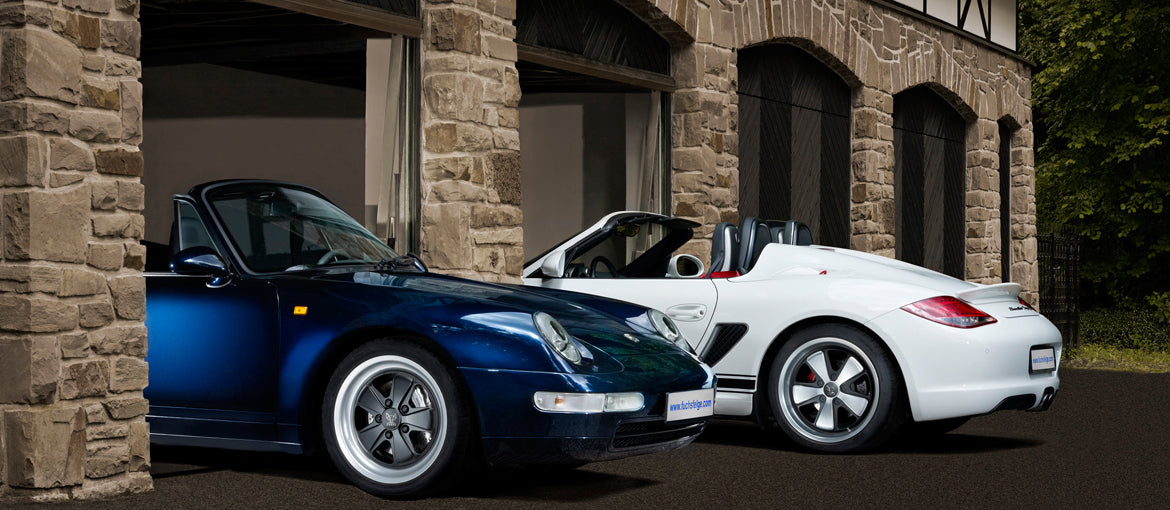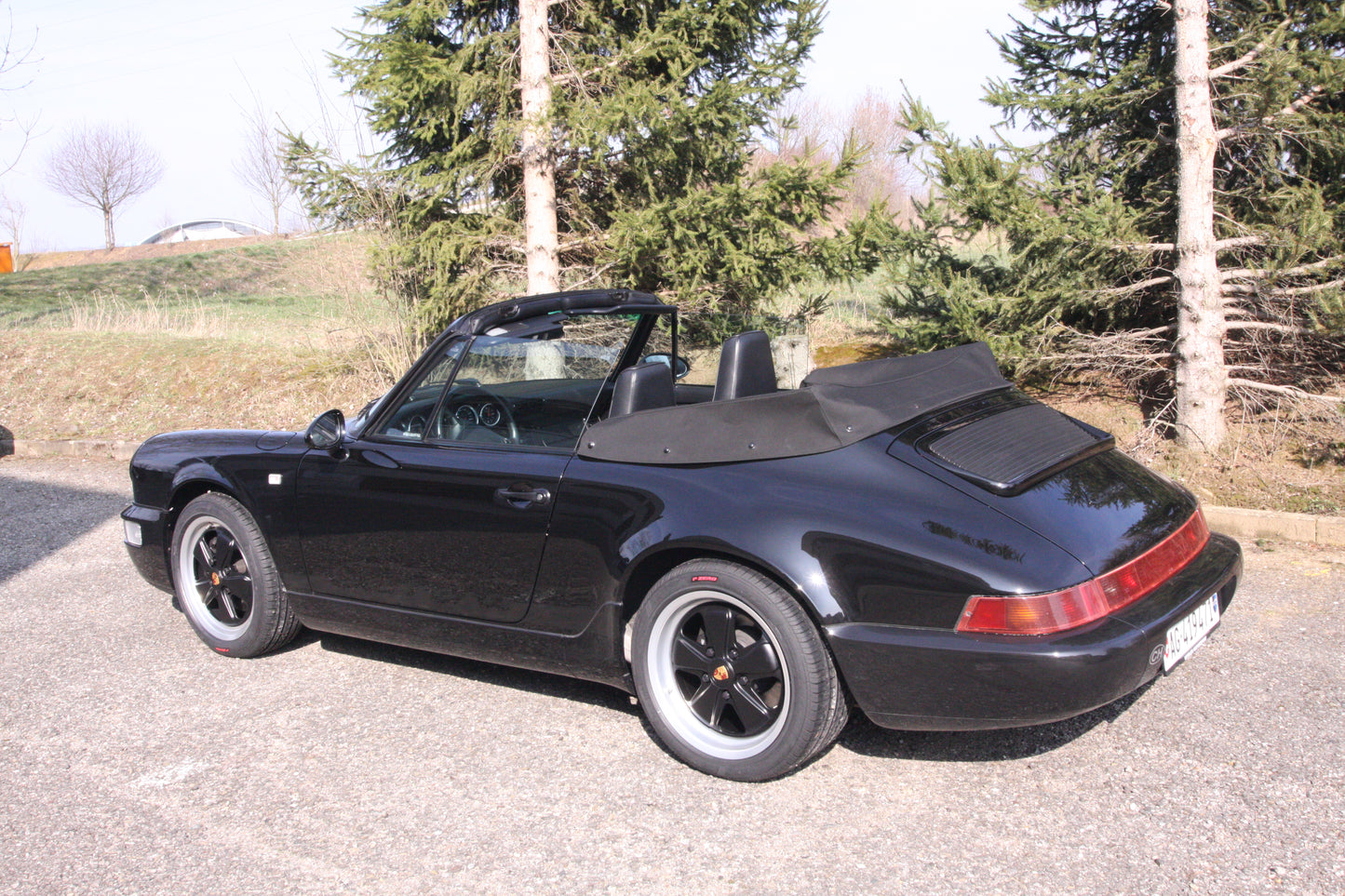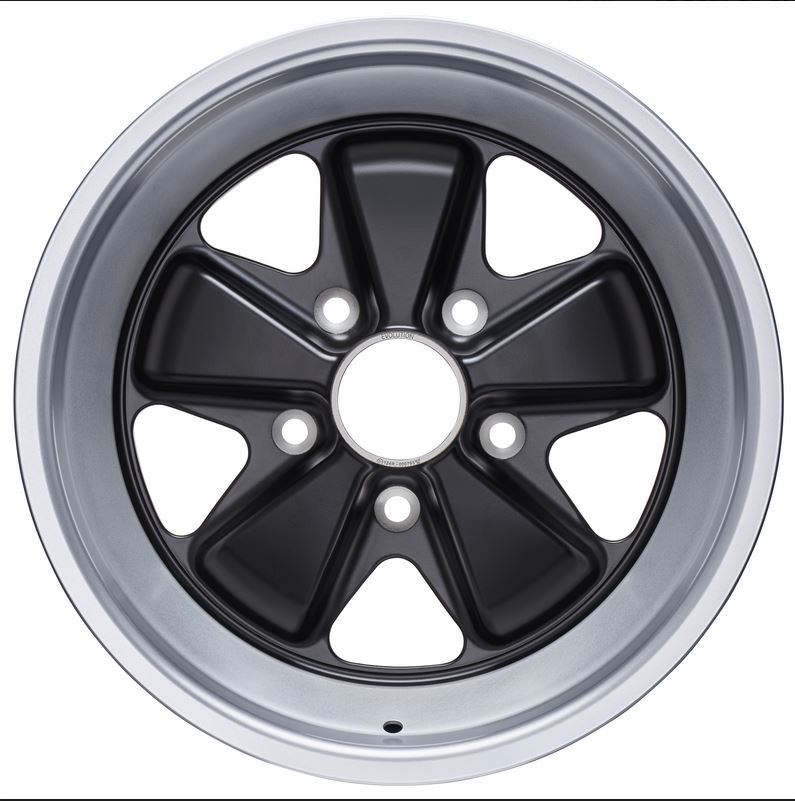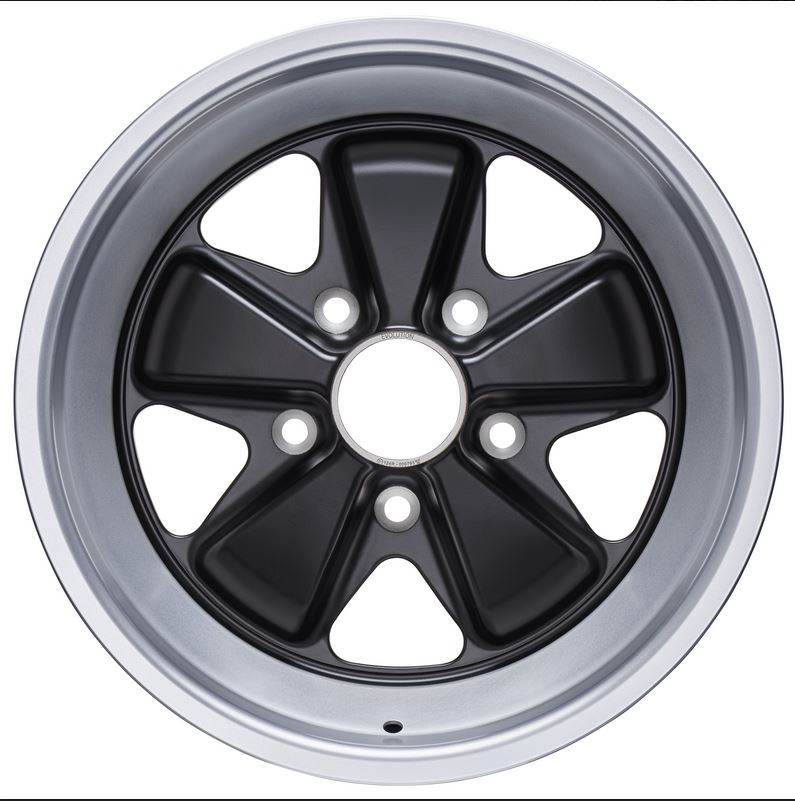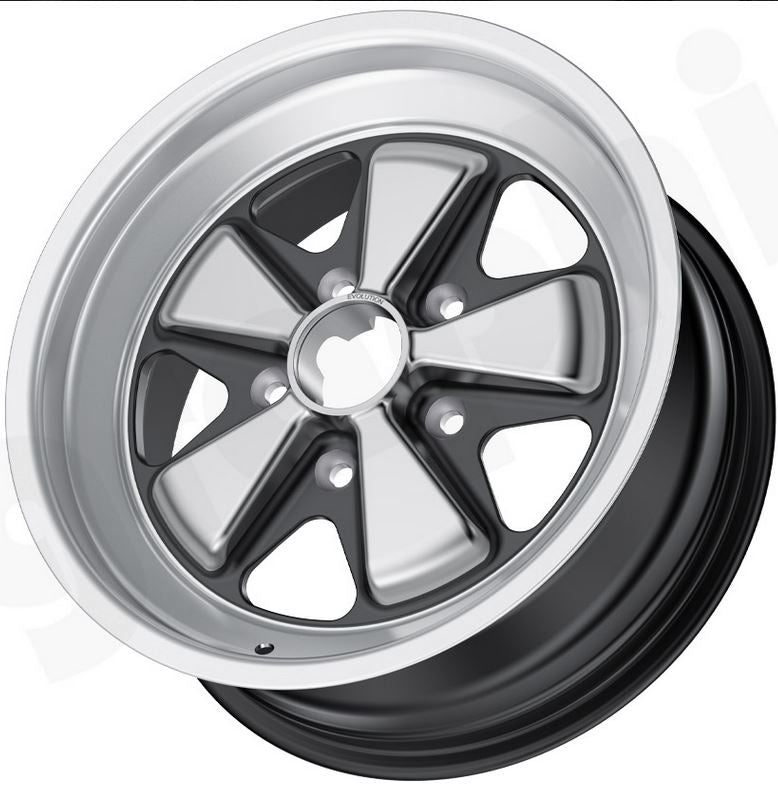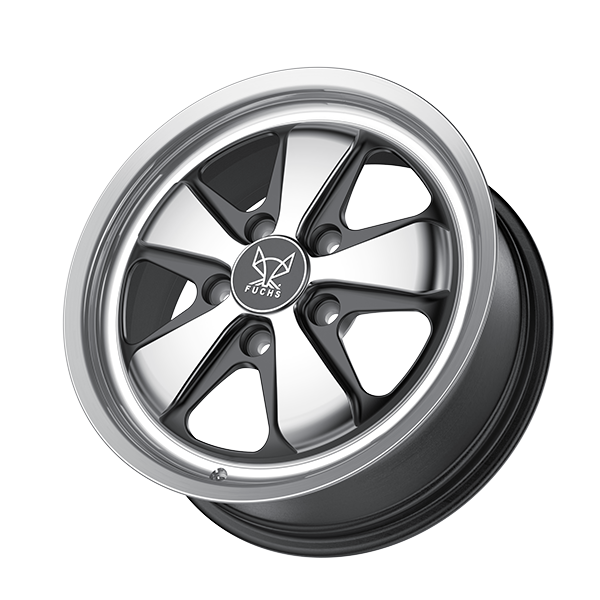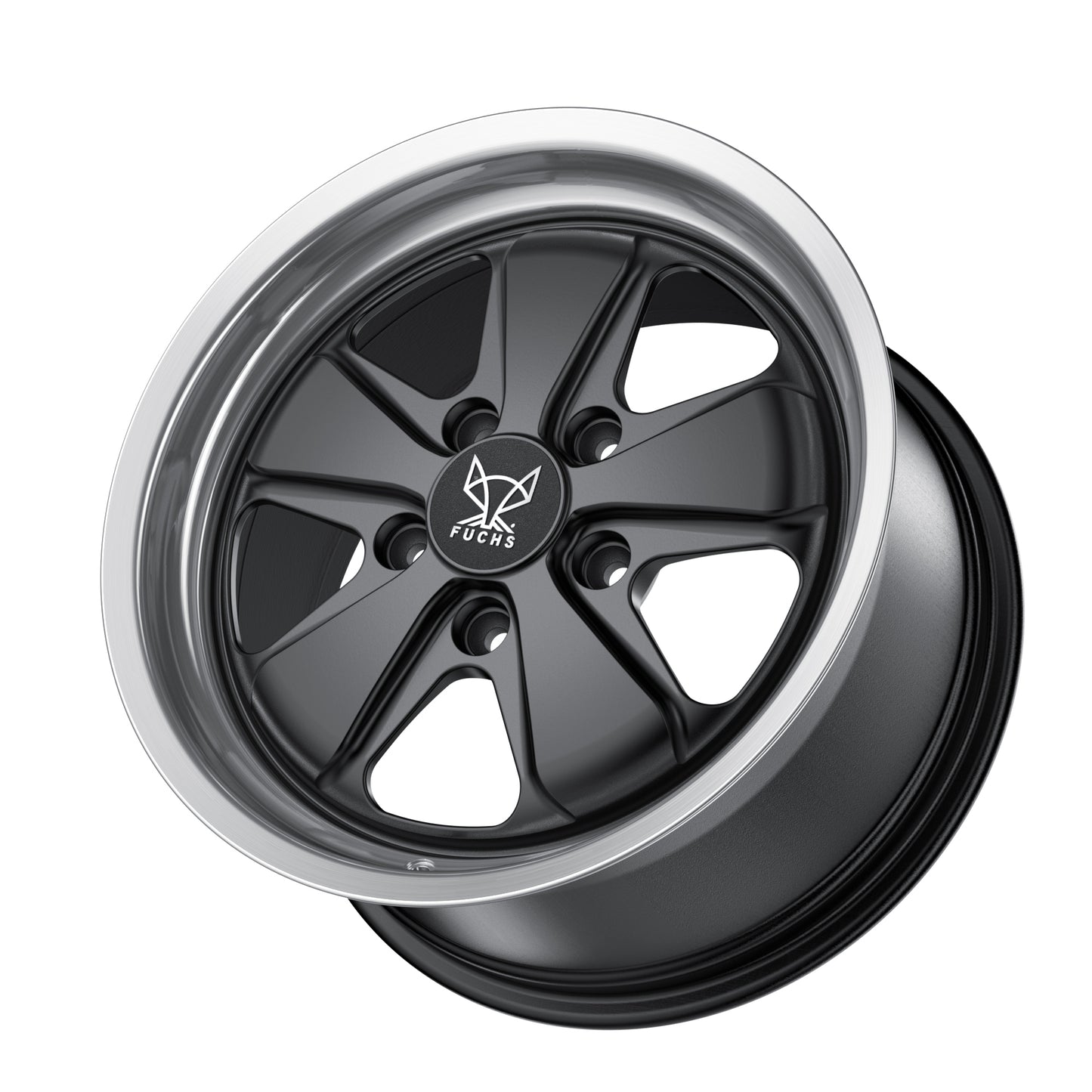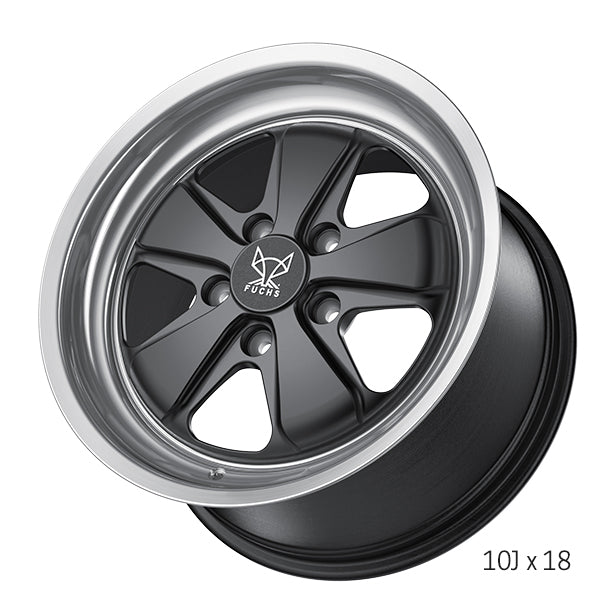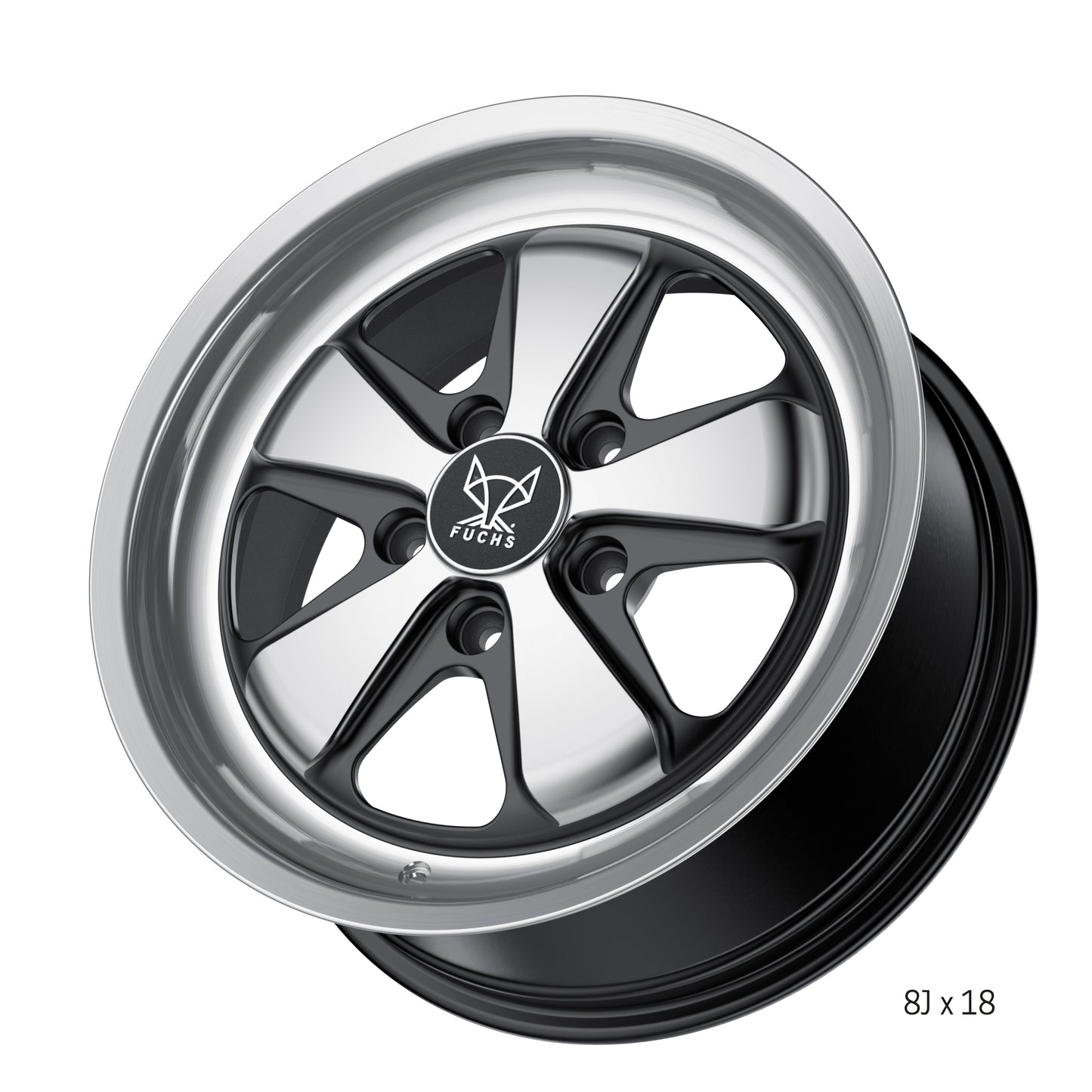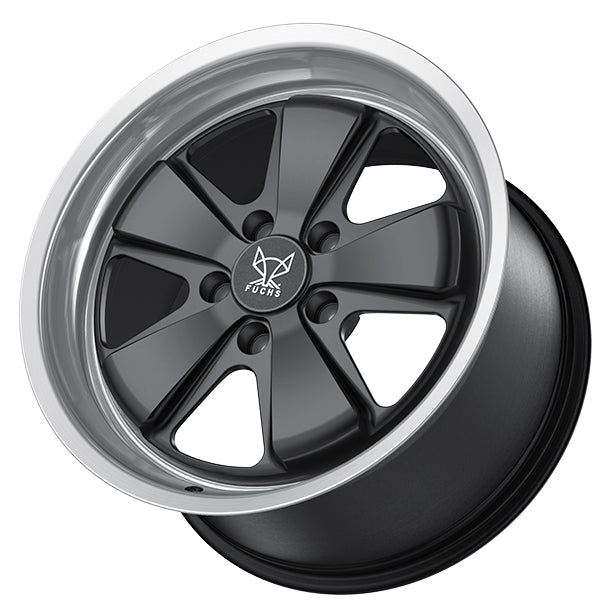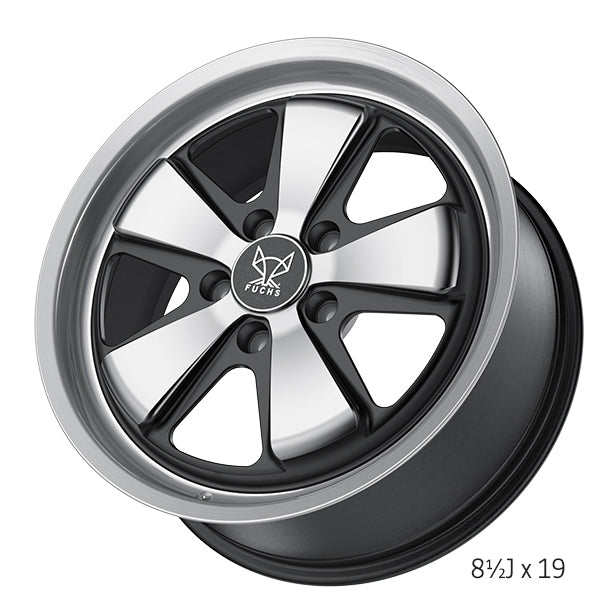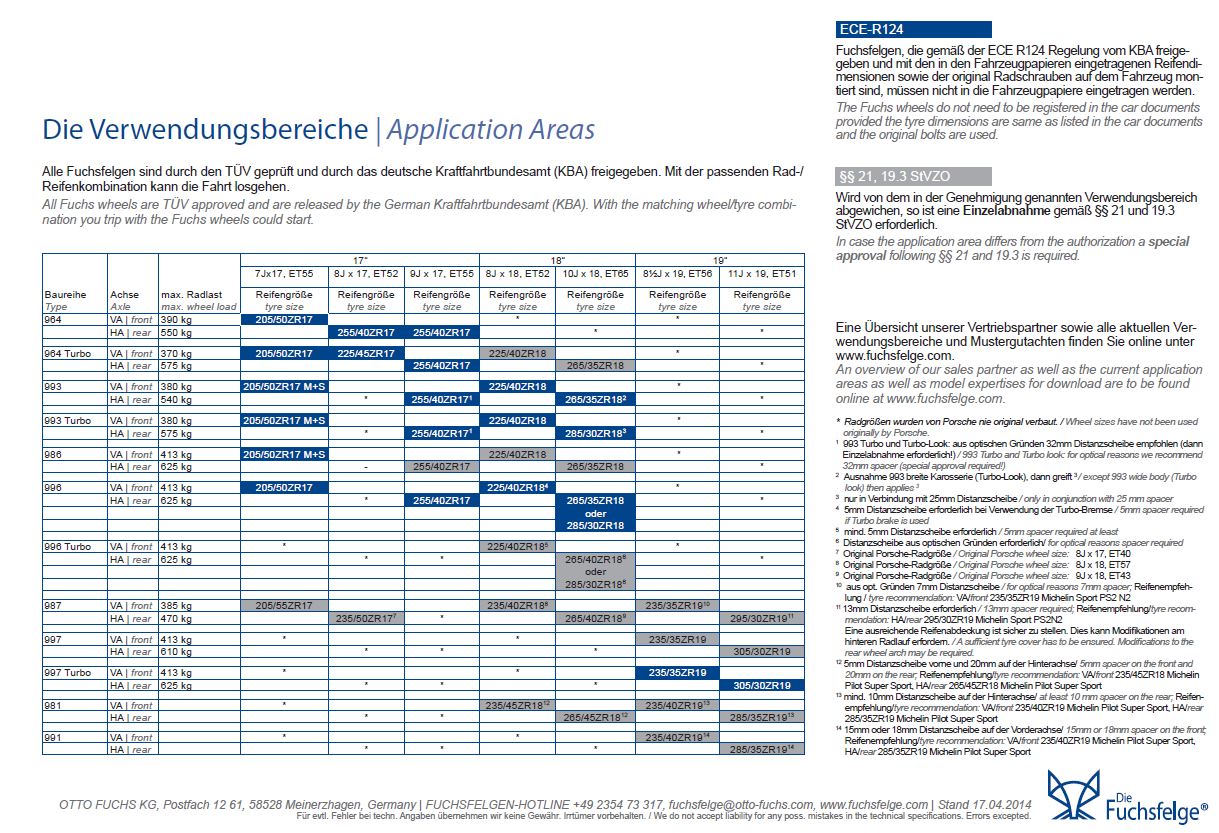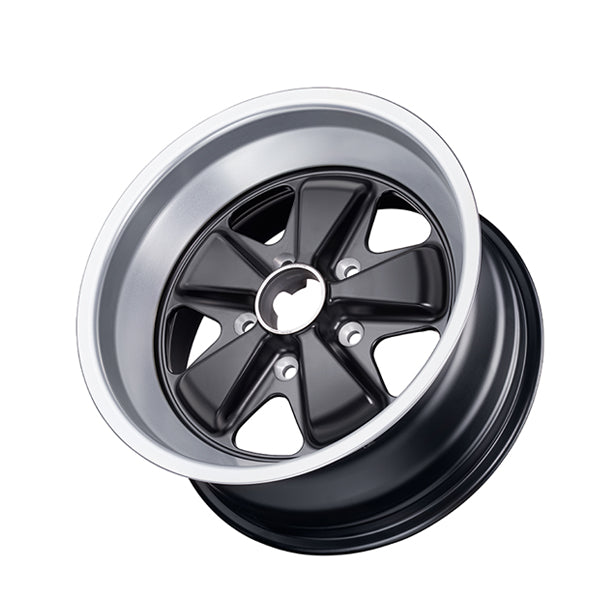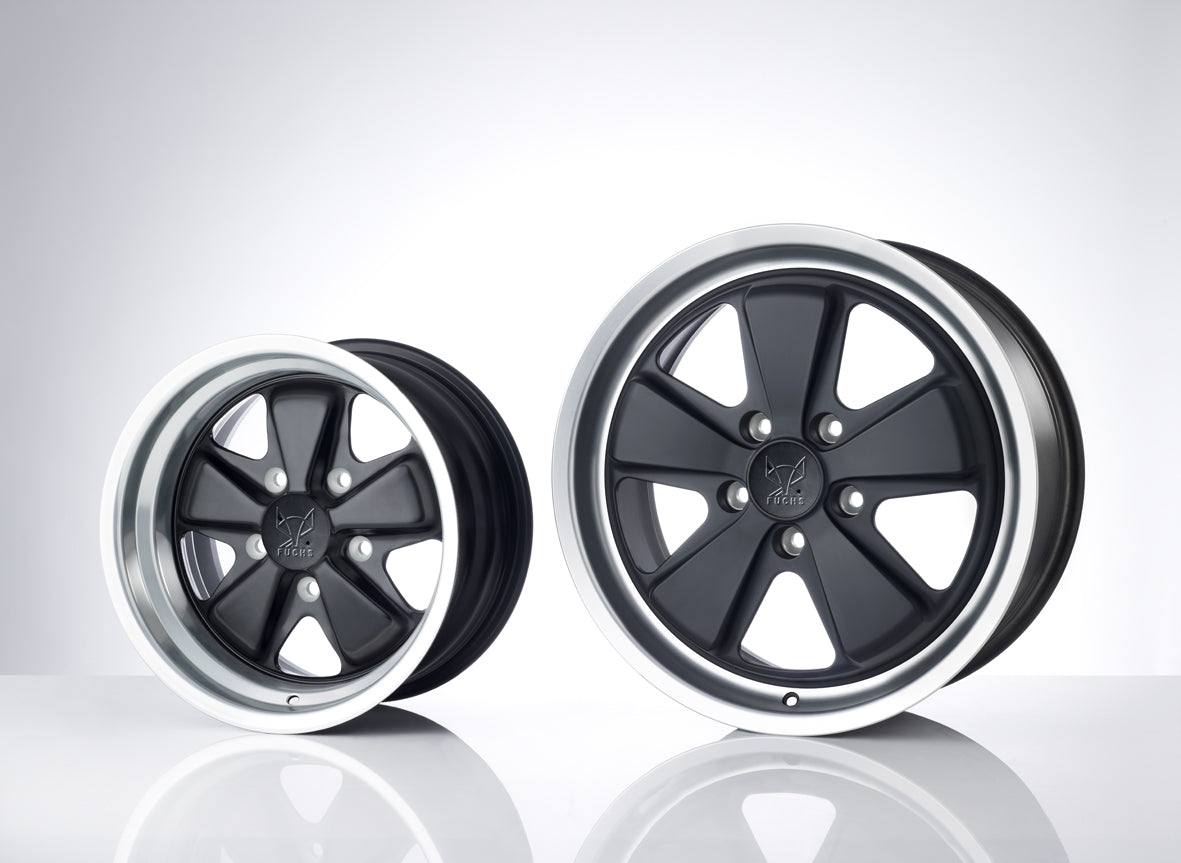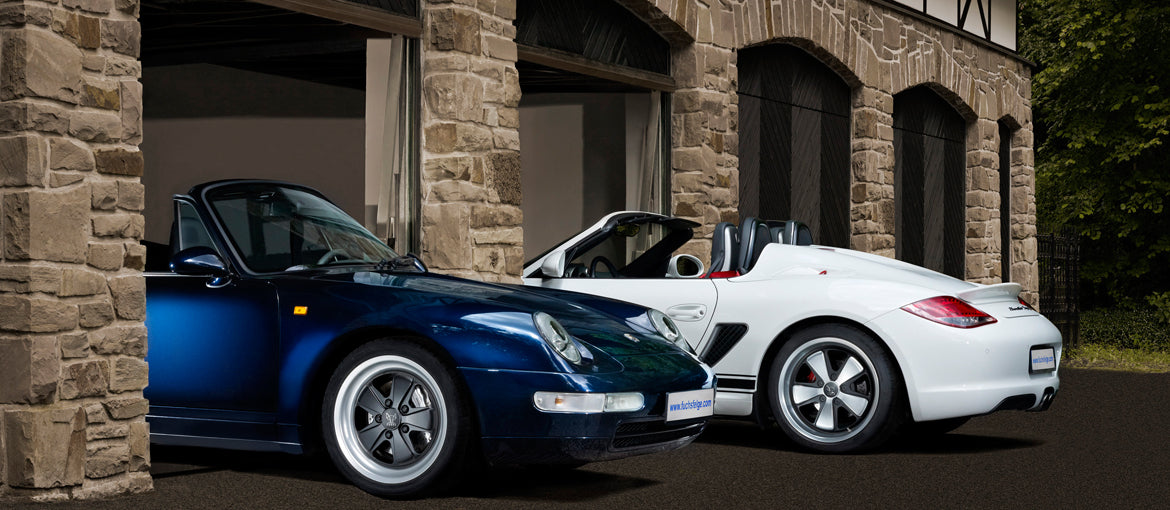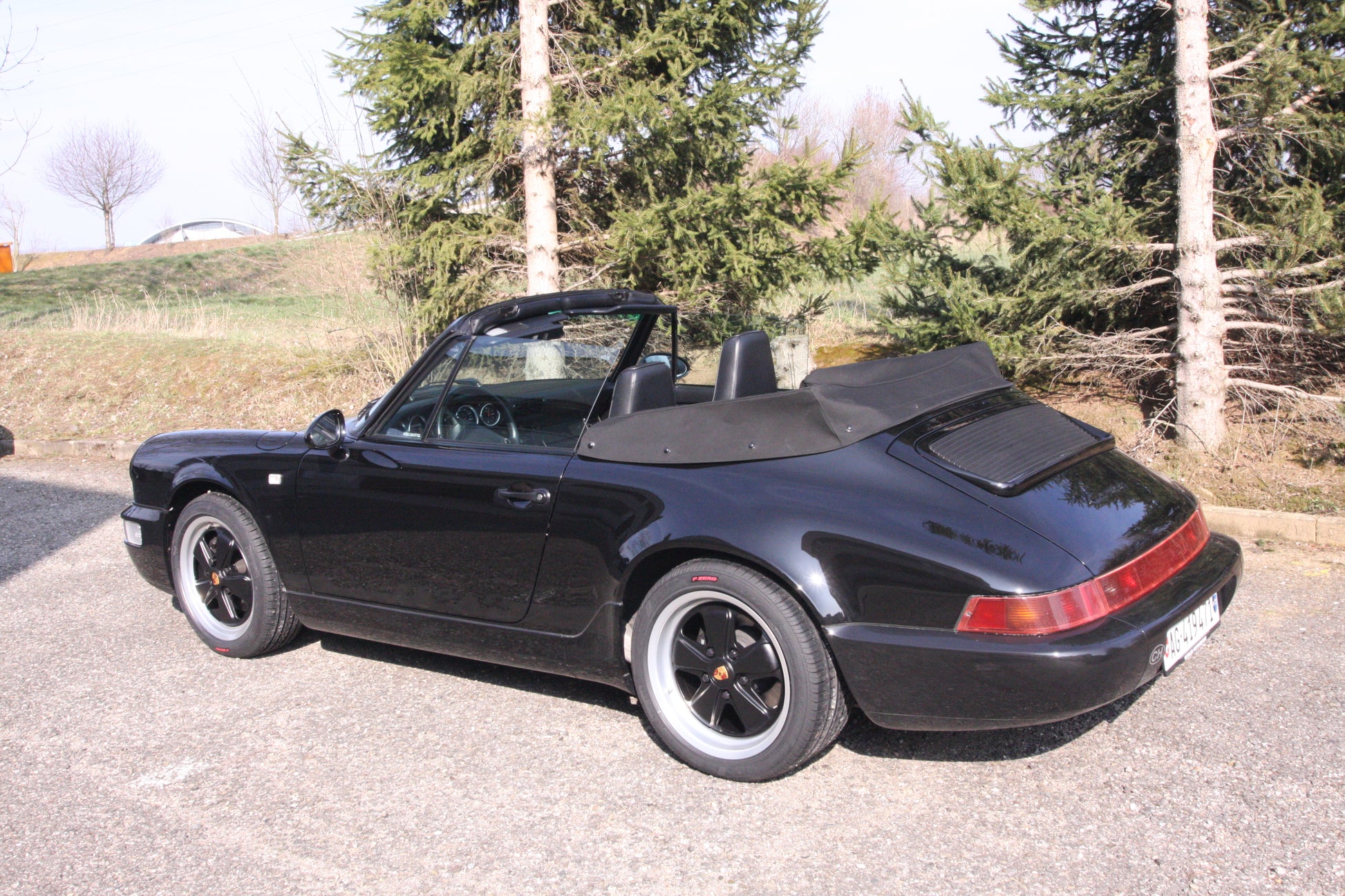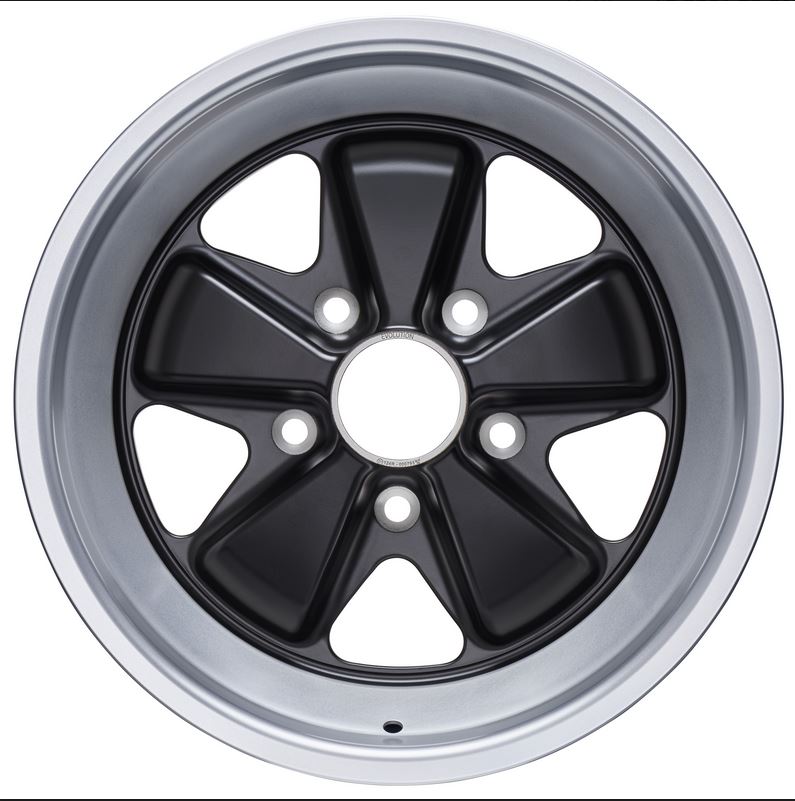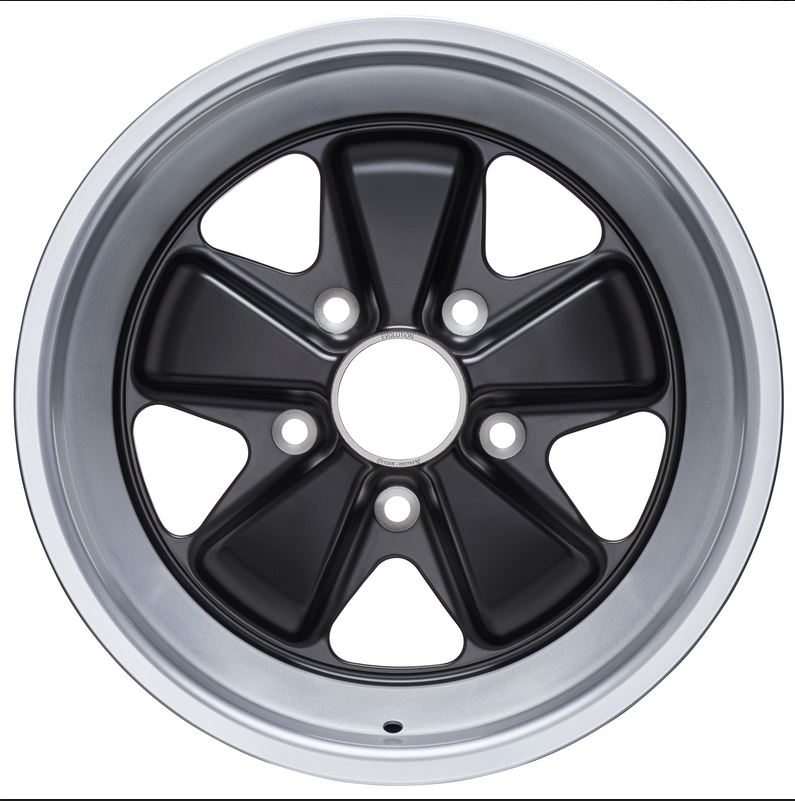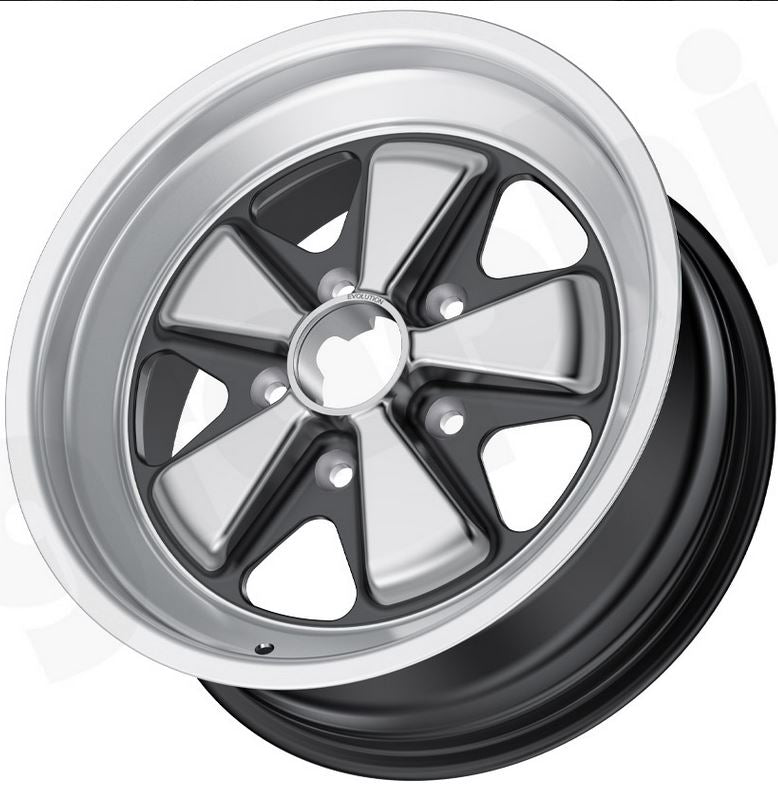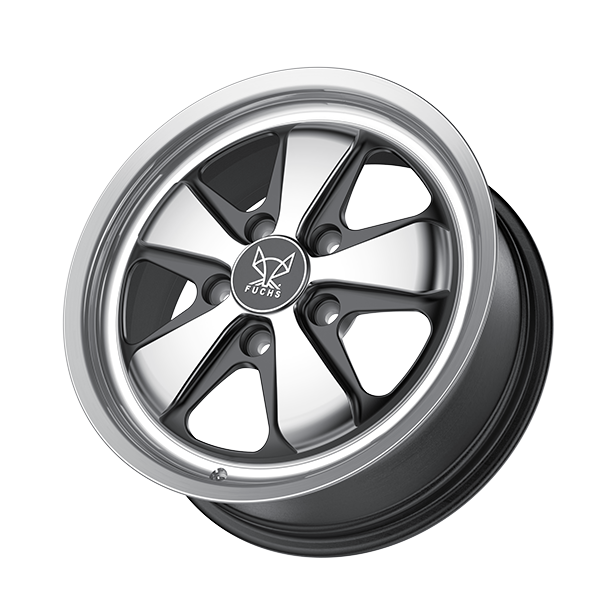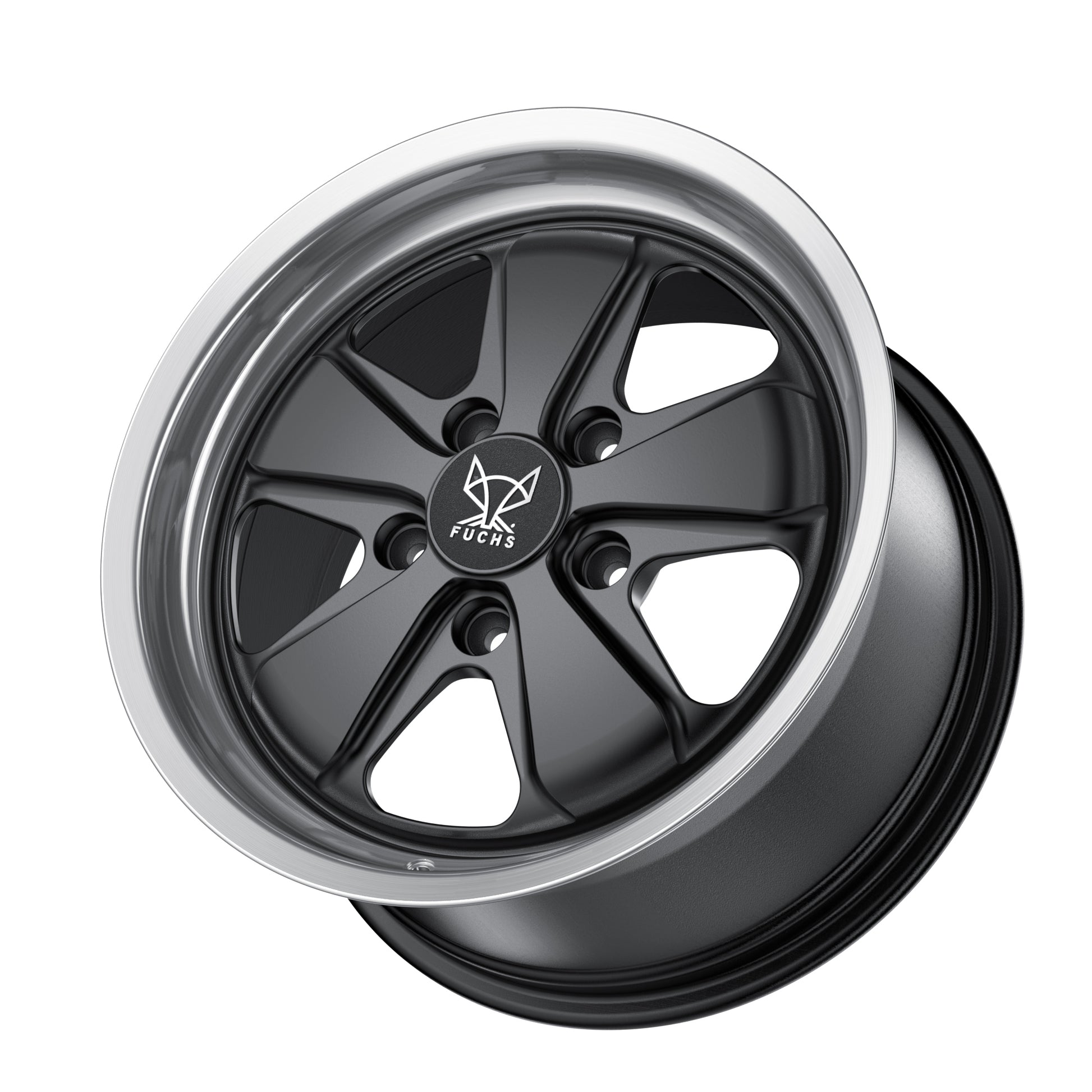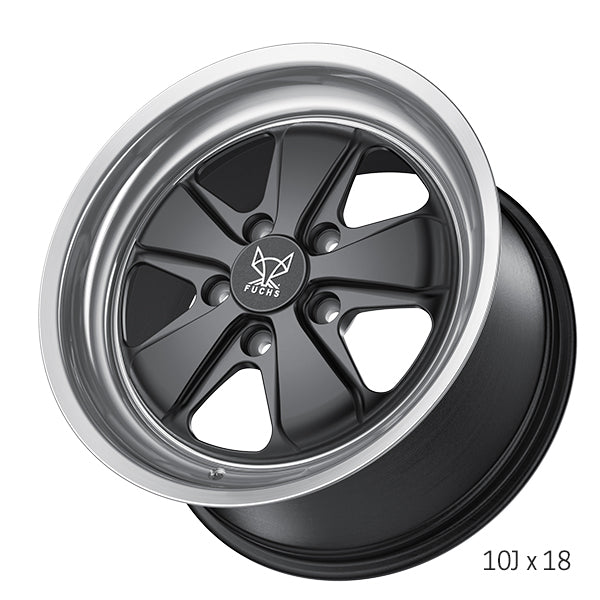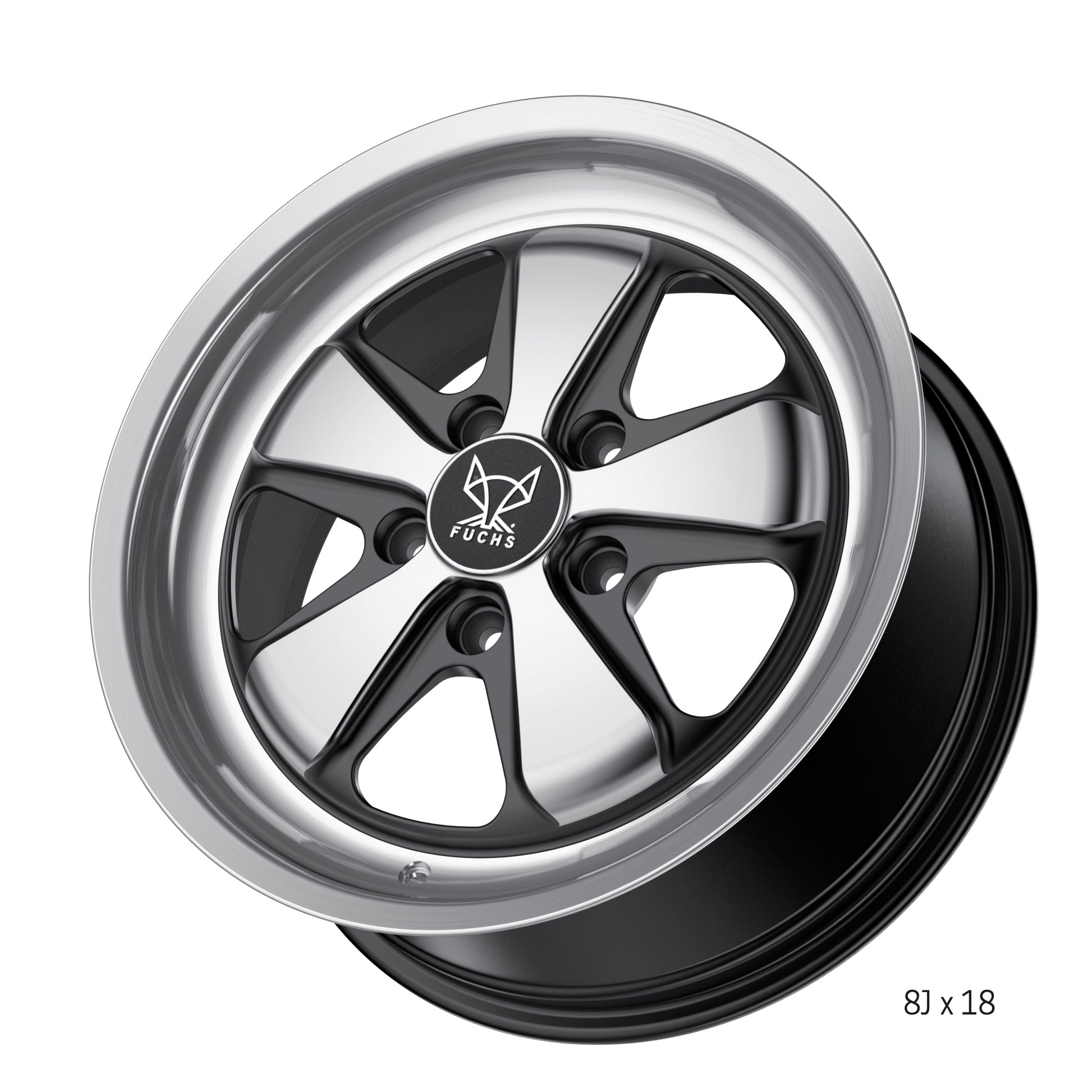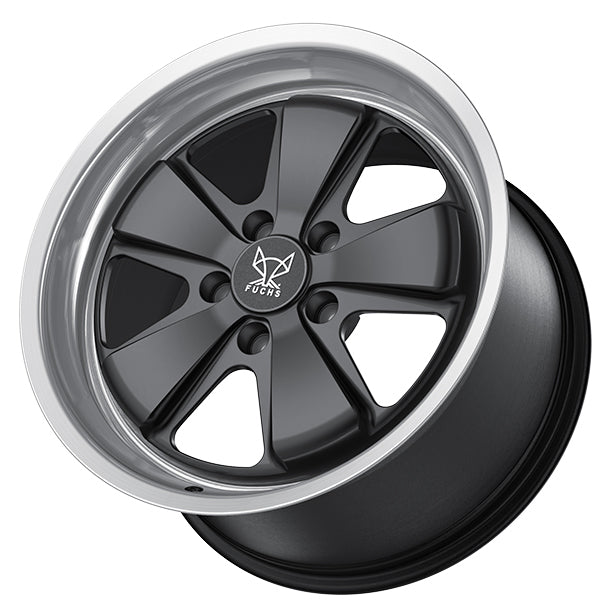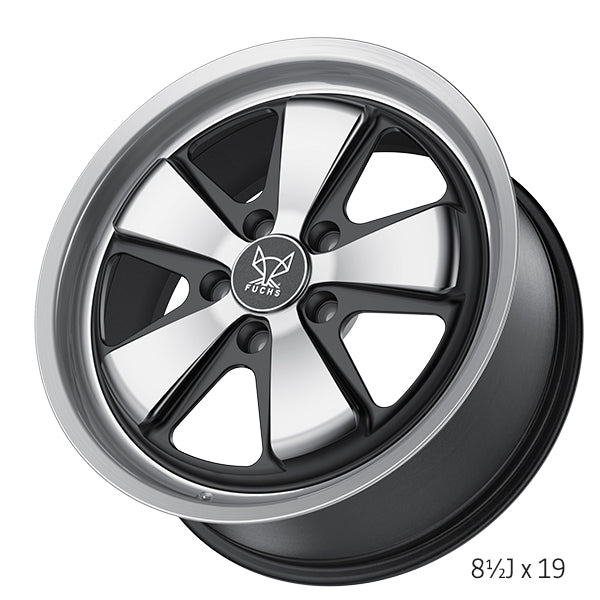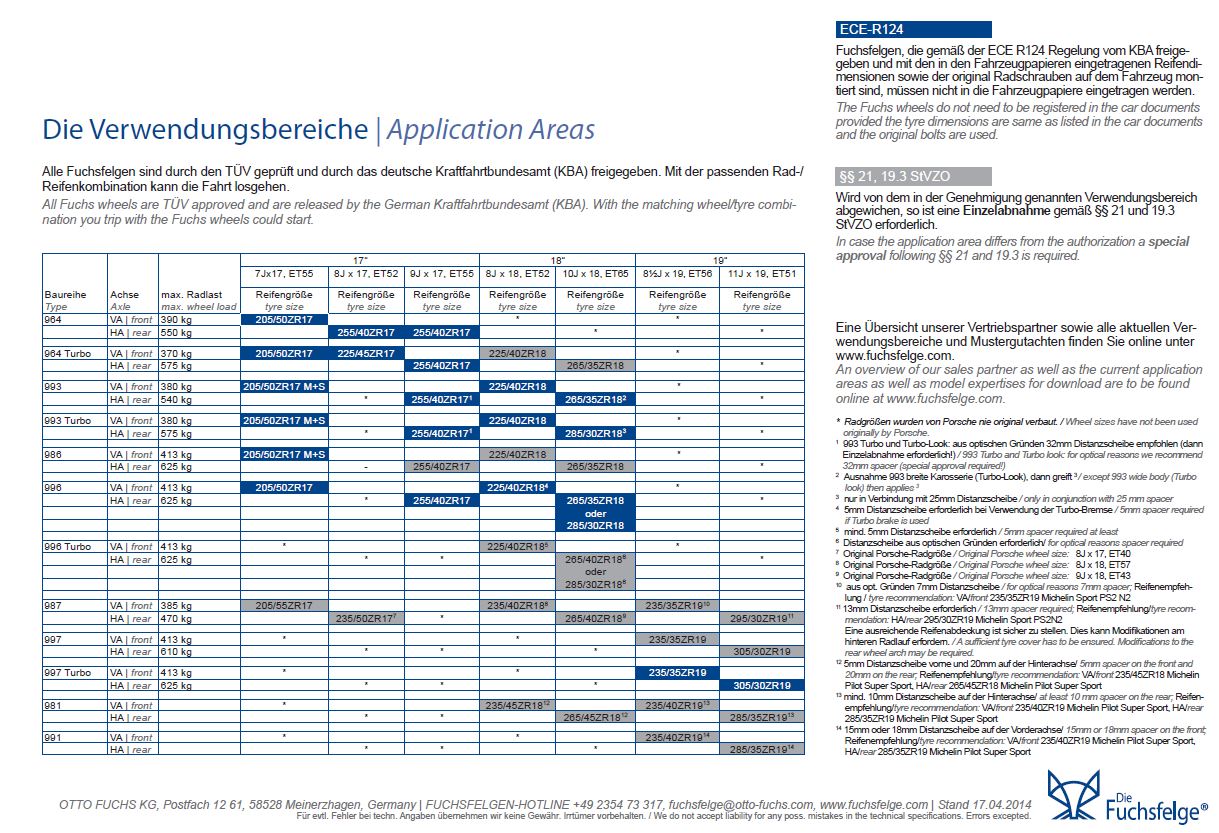The retro Fuchsfelgen rims are fully anodized (thick layer anodized) and, depending on the surface finish, partially hand-painted matt black. The deep bed is anodized with a satin finish and is not protected by an additional clear coat. To ensure that your new Fuchsfelgen retain their beauty, we provide the following care instructions:
For cleaning, you should use warm water mixed with a ph-neutral neutral cleaner, alternatively we recommend our Fuchsfelgen cleaner. This is also ph-neutral, which corresponds to a ph value of 6-7.
Neither alkaline nor acidic rim cleaners should be used to clean the wheels. You could destroy the protective, natural surface of the wheel.
Please always observe the instructions for use for special rim cleaners. Pay particular attention to the note: Do not use on bare aluminum or on polished wheels!
The cleaner should be applied to the cooled wheel surface with a clean cloth or soft sponge. • Under no circumstances should scouring pads, steel wool, scouring agents or similar be used for cleaning.
The rims should also be cleaned of dirt, salt and brake dust on the back, not just on the visible side.
Then wash the wheels with plenty of clear water.
When cleaning in car washes, it should be noted that the wheel only comes into contact with soft cloths and textiles and that no rim cleaner is used.
More information:
In general, no high-pressure cleaner should be used to clean the wheels.
In winter, the wheels should be cleaned about once a week, in summer about once a month.
Subsequent processing of the wheels is not permitted in any respect. Such a wheel then no longer corresponds to the tested original condition, which was approved by the TÜV and approved by the KBA. If you mount a post-treated wheel, the operating permit will expire immediately.
Safety and maintenance instructions
With the following safety and maintenance instructions, we as OTTO FUCHS KG base ourselves on the general EUWA guideline for the use of wheels. With these notes, we intend to inform consumers such as vehicle owners or drivers about the dangers and risks associated with the use of wheels and typical activities such as wheel assembly or disassembly.
Avoid damaging or deforming the wheel by applying excessive force or impact during handling or assembly to the vehicle. In order not to damage the surface protection of the wheel, bumps and scratches must be avoided. There is a risk of rough running, vibrations or a limited service life.
Observe the information in the vehicle operating instructions.
Wheel bolts (only use original bolts!) must be tightened to the recommended torque in accordance with the vehicle manufacturer's instructions. It is recommended to use a torque wrench and tighten the wheel bolts gradually rather than in one go. The correct fastening sequence is crosswise across the center of the wheel: first tighten one screw, then the one opposite or the furthest away.
On a new vehicle and every time a wheel/tire is changed, it is absolutely necessary to check the tightening torque after driving approx. 50-100 km and, if necessary, to tighten the wheel bolts again to the correct value. Insufficient tightening of the fasteners can cause the wheel to come loose. Excessive tightening can cause wheel disc deformation or bolt failure.
The wheel, as a safety part, must not show any cracks, breaks, deformations, excessive signs of wear or similar defects. Corresponding parts must be replaced and scrapped. Even in the event of suspected damage, e.g. B. due to a deep pothole or an obstacle that has been driven over, the affected part must be replaced. Otherwise there is a risk of reduced service life or premature failure.
Any technical modification to wheels is not permitted. Damaged or deformed wheels must not be repaired, either by heating, by welding or by adding or removing material. There is a risk of reduced service life or premature failure.
